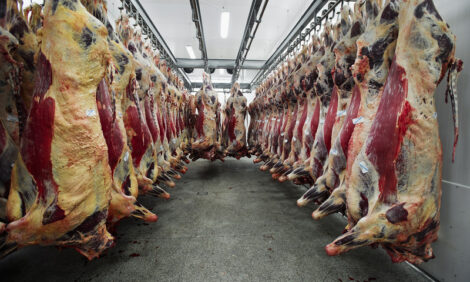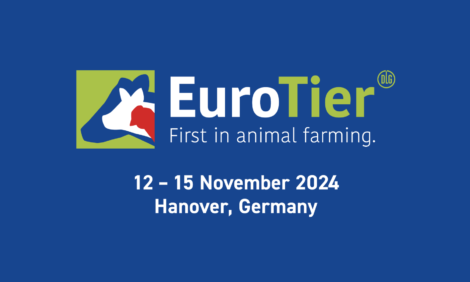



UK Red Meat Levy Boards Plan New Way to Spread Money
UK - The red meat levy boards in England, Scotland and Wales have submitted a briefing document to Ministers outlining an alternative option for the distribution of red meat levy income.This alternative, developed jointly by the three organisations, would take into consideration the scale of economic activity undertaken by the red meat industry in each country, rather than only where the animal is slaughtered.
The Agriculture and Horticulture Development Board (AHDB), Quality Meat Scotland (QMS) and Hybu Cig Cymru (HCC) have been in talks for some time considering how changes could be made to the current system.
At present, levy is collected at point of slaughter regardless of where animals spent their lives and where value has been added to beef cattle, sheep and pigs.
Under the potential new system, animals that have spent part of their lives in different countries would have the levy apportioned across those different countries.
The levy boards have also agreed to look at new ways of working in partnership on activity where there is mutual benefit, such as supporting export market access work in countries where there is potential to sell pig meat, sheep meat and beef from across Britain.
New system would take industry changes into account
Dai Davies, Chairman of HCC, said: “The new system would take into account the scale of the industry in each of the countries and base the levy distribution on this, which acknowledges structural changes that have happened in the industry across Great Britain over the last decade.”
Peter Kendall, Chairman of AHDB, added: “We were challenged to take a fresh look at the way the levy is distributed. We have subsequently developed a mechanism which could potentially be used to distribute red meat levy in a different way, bearing in mind changes to the structure of the abattoir sector in Britain in recent years.
“It also gave us the opportunity to look at where we can continue to work together closely and jointly fund work that is beneficial to all of us where we face shared challenges. That has to be good news for all of our levy payers.”
Jim McLaren, Chairman of QMS, said: “QMS is very encouraged by the progress that has been made by the three GB red meat levy boards on this matter. We hope the proposals now on the table will be fully considered by Ministers allowing us all to move forward.”
Slaughtering declining in Scotland and Wales
Over recent years, due to declining slaughtering in Scotland and Wales and a growing concentration of abattoirs in England, there have been increasing numbers of animals originating from Scotland and Wales crossing the border to be slaughtered in England.
Under current legislation, established by statutory instrument when the levy boards were set up following devolution, levy on these animals is collected in England and there is no legal mechanism for AHDB to pay levy funds from England to QMS or HCC. Similarly, levy cannot be redistributed to England for those animals crossing to Scotland or Wales for slaughter.
Figures calculated by the levy boards suggest that:
- 66 per cent of sheep slaughterings occur in England but only 47 per cent of the breeding sheep are based there
- 96 per cent of pig slaughterings occur in England, but only 91 per cent of breeding pigs are based there
- Wales has 14 per cent of the breeding cows, but only 7 per cent of the cattle slaughterings
- Scotland has 22 per cent of the breeding sheep in Great Britain, but only 10 per cent of the sheep slaughterings.
If Ministers opt to implement the new mechanism, it would involve some redistribution of the producer element of the levy, with no extra work or cost for producers or abattoirs.
It would be based on information from animal movement databases, among other sources. The processor element of the levy, paid by slaughterhouses, would not be affected.
Before any changes could be made a legislative process, which would include Government consultations with the industry across GB, would need to be completed. Accordingly, it is unlikely any changes will come into force before April 2017.
TheCattleSite News Desk



